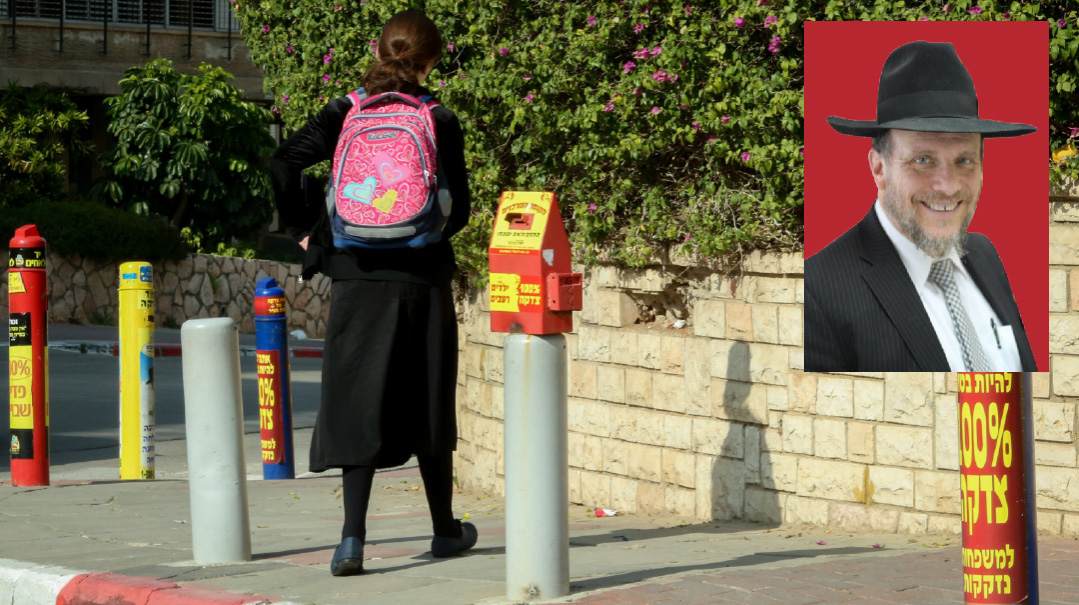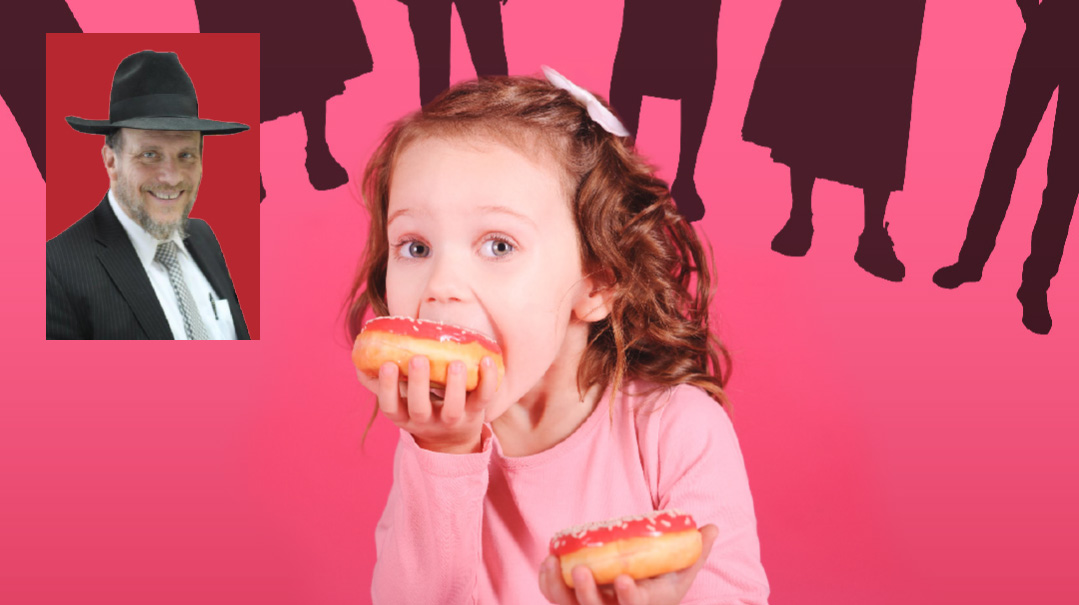Chinuch Habanos

When we choose a school for our daughters, we should be looking for teachers who care about and love the Torah they teach and care about and love the children they are teaching

Question
My husband and I have been blessed with six girls, the oldest just turned nine. After much discussion, debate, and distressing arguments between us, friends, and relatives, we all agreed to ask you this multifaceted question.
Chinuch Habanos — Girls’ education — seems to have evolved greatly since its inception in 1917.
- How can we determine which schools today truly represent the values of that movement?
- What are the most important values we should be seeking in choosing schools for our daughters?
- How important is the student body and how do we prioritize when there are conflicting values?
- What can we do for our daughters besides school to keep them safe in a world that seems to have gone crazy?
Answer
One or two quotes from the founder of the movement will help us focus on all your questions. “The Main goal of the Beth Jacob School,” wrote Sarah Schenirer, “is to train the Jewish daughters so that they will serve Hashem with all their might and with all their hearts; so that they will fulfill the commandments of the Torah with sincere enthusiasm and will know that they are the children of a people whose existence does not depend upon a territory of its own, as do other nations of the world…
“The Bais Yaakov School has as its goal the training of the Jewish woman to fulfill the commandments of the Torah and to educate its daughters in the Torah spirit. Not by the construction of beautiful edifices or large libraries will the fire of knowledge be implanted. No! Only when they will study the holy Torah, disseminate and spread it, fan its flames, open the Jewish eyes and warm the Jewish hearts with it, will the law of the Torah remain the law of life. And how can this happen if not through intensive religious schools for Jewish daughters? Therefore, we must organize only truly Orthodox schools for your daughters which will imbue them with the Jewish faith and will implant in their hearts a Jewish consciousness.”
Any school that trains their students to serve Hashem with all their hearts, with enthusiasm for Torah and mitzvos; any school that spreads the Torah, fans its flames, opens the Jewish eyes and warms the Jewish hearts; can be considered a continuation of the values of the Bais Yaakov movement. Schools that recognize that the Jewish heart is the goal, the learning of Torah the medium; schools that teach them the Torah in a way that will bring them to Jewish faith — emunah and bitachon — and will implant in their hearts Jewish consciousness, they are loyal to the values upon which girls’ Torah education was founded.
When we choose a school for our daughters, we should be looking for teachers who care about and love the Torah they teach and care about and love the children they are teaching. These teachers will make the Torah beloved to their students. Look for a school where the students love what they learn and love the people that teach them. Frau Schenirer would dance with her students after teaching them the inspiring classes that she received from her mentors. She understood and taught that Torah must be taught with love and joy. She demanded much of her students but even more from herself.
In a letter by Rav Dessler brought in the Michtav Me’Eliyahu, Vol. 3: 362, the great master Mashgiach and the most influential spiritual founder of Gateshead Teacher’s Seminary, he writes that unlike many disciplines where the main purpose is the acquisition of knowledge, “The purpose of a teacher in teaching Torah is to bring the student to kedushah and endearment, which then develop into awe and love of Hashem. And that is the main point of learning.” If we do not connect the hearts of students to Torah but only find more professional methods to teach the “information,” then we are losing the main impetus of learning.
In another essay on “Vehalachta Bidrachav” Vol.1, p. 138, Rav Dessler explains that teaching a class or giving a lecture will do nothing to change a student’s way of thinking unless the material is relayed with “true selfless chesed. Total giving with no intent of receiving anything in return.” A tall order no doubt, but the only way that Torah can be taught.
He continues with words that reverberate in my mind every time I enter a classroom. “With our eyes we have seen people who are great learners, with brilliant minds, Shomrei Torah and mitzvos with superior intellectual abilities, and even so they do not wield influence in the schools to inculcate the spirit of Bnei Torah to the students as is necessary. And this is because they are working for the position, for the salary, or for their prestige. Such teachers will have no effect. This is the intent of Chazal when they say, ‘Words that come from the heart (of the teacher) enter the heart (of the student).’”
As for the student body, this is the most difficult part of the equation, but as difficult as it might be, we must remain loyal to the core values. The social element of a school is far more important than we can imagine. A serious researcher proved that friends often have greater influence on our children than we do as parents.
Of course, we must take the student body of a school into consideration when choosing a school. If the girls are doing inappropriate things, or are not respectful, then of course, that is part of the safety we spoke about earlier.
However, we often get confused with what a better chevreh is. A group of “very good girls from very good families” can be a chevreh with no heart and no soul, competitive, judgmental, and haughty. Another group can be simple girls from simple families with middos tovos, humility with inclusivity.
A “good school” can be built on academic excellence and intellectual elitism, with a harsh principal who sees her school first and her students fourth. Another can accept a hard-working average student with a loving, warm atmosphere that appreciates growth and kindness. It is clear that the values of “Bais Yaakov” are not represented in the first school. A school with a positive, growing atmosphere can carry its students through challenges and prepare them for life. A school that has a critical, negative atmosphere will “throw out” any student who falters.
Of course, I conjured somewhat extreme circumstances to illustrate the points, but when you choose the school for your daughter, find out a little about how they deal with the students. Is there a respectful atmosphere? Is there care and consideration? Is there achdus among the students, etc.? Good girls equal good middos and yiras Shamayim.
You ask what can we do to keep our daughters safe besides school? Indeed, school is but one of the methods that we use to keep our daughters safe. Chinuch is our responsibility and therefore we are responsible to know that our daughter is safe in school as well.
We most certainly must consider and employ a plethora of methods for keeping our children safe. We must begin with our homes where our children must be and feel physically, emotionally, and spiritually secure and safe. First and foremost, our homes should be happy, filled with laughter and warmth. Nothing keeps our children safer than knowing that the best and happiest place to be is in their own home.
We must teach our children at a young age about personal safety. We must develop a trusting and loving dialogue from a young age so that they feel safe sharing that which they are experiencing. Acceptance even when they fail; love even when they challenge. What will we accomplish by teaching that we are their protectors if when something happens they cannot confide in us for fear of our reaction or disappointment?
Of course, we need to make our home a fortress to protect our children from the decadence and immorality of the crazy world we live in. Yet sending them to good schools and making sure that they have good friends will not suffice if a device the size of a thumb can transport everything from that crazy world into our fortress.
And lastly, we need to be role models of shalom, humility, and respect for one another and towards all talmidei chachamim, and most certainly gedolei Yisrael. This will give them confidence in our mesorah and halachah.
(Originally featured in Mishpacha, Issue 954)
Oops! We could not locate your form.







